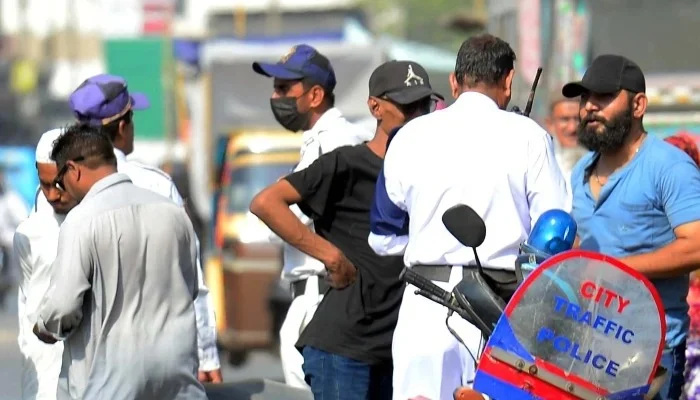Senior Traffic Official Fined Under New E-Challan System
KARACHI – In a striking example of accountability, the newly launched faceless traffic monitoring system in Karachi has issued an electronic challan (fine) to Deputy Inspector General (DIG) of Traffic, Peer Muhammad Shah, for violating road safety rules.
According to the official record, a traffic monitoring camera on the Lyari Expressway (Garden section) captured footage of the DIG’s vehicle being driven without the driver wearing a seatbelt. The system automatically generated a fine of PKR 10,000 and imposed two demerit points on the vehicle’s record.
Interestingly, the car is registered in the name of the Inspector General (IG) of Sindh Police, but was being used by the DIG Traffic.
Officer Acknowledges Violation
DIG Peer Muhammad Shah confirmed the fine and said the vehicle was being driven by his driver at the time of the violation. Yes, my car has been fined, and I came to know about it today, he told local media.
His public acknowledgment has drawn attention and appreciation on social media, where many users hailed the move as a positive sign of equal enforcement of law—a rare occurrence in Pakistan’s policing history.
Thousands Fined in First 48 Hours
The new E-Challan system, introduced to encourage traffic discipline and transparency, has begun showing results. Within just 24 hours of launch, authorities reported that 4,301 motorists were fined for various violations, including speeding, red-light jumping, and seatbelt negligence.
Officials from the Karachi Traffic Police say that the automated system uses AI-powered cameras to detect violations and send fines directly to the vehicle owners’ registered addresses or mobile numbers.
A Step Toward Accountability and Safer Roads
The initiative is part of a broader plan to modernize Karachi’s traffic management, reduce human interaction, and minimize corruption. Similar systems are already in place in cities like Lahore and Islamabad, where authorities claim a 10–15% drop in traffic violations since implementation.
Traffic experts believe such systems could help reduce Karachi’s high rate of road accidents—estimated at more than 30,000 annually, according to city transport data.
As enforcement becomes stricter, even senior officials being held accountable could signal a shift towards a more law-abiding driving culture in Pakistan’s largest city.















